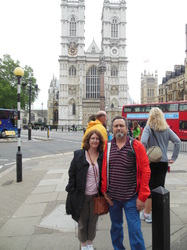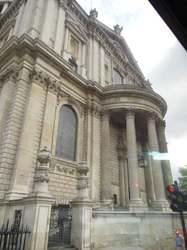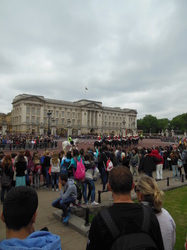The Bonaparte brothers greatly supported the French Revolution. In fact, they organized a tag team and implemented Joseph in the creation of new government while, Napoleon went full steam ahead with military overhaul. During the first years of the French Republic, Joseph served as a foreign diplomat. Unlike his younger brother, Louis, Joseph was extremely driven and empowered by his new found responsibilities. Some of his more recognized duties included; helping negotiate several treaties between the French government as well as European powers and serving as a representative for Corsica in the Council of Five Hundred. By the time 1799 rolled around, Napoleon reorganized the French government and appointed himself as head of the French Consulate. Over the course of the next four years, Joseph again played a diplomatic role; helping negotiate the Treaty of Lunéville with Austria in 1801 and a short time later the Treaty of Amiens with England in 1802. Then in 1803, Napoleon's military ambitions severed relations between France and England. Although Joseph Bonaparte held to the principles of his brother and served him as best he could, Napoleon's push for dominance throughout Europe eventually broke their bond. Things got even more heated after Napoleon had consolidated his power and the two had to decide on a successor. The quarrel came to a head when Napoleon established himself as emperor, immediately afterwards he offered Joseph the opportunity to rule over Lombardy if he would his waive claim to succession, but he refused.
It wasn’t until 1806, Napoleon named Joseph Bonaparte King of Naples. During his brief reign, he was able to make some progress in the re-modernization of bringing the backward country into modern times. The accomplishments which he laid the ground work and set into effect for all future people included; abolishing feudalism, introducing educational, judicial, and financial reforms, as well as reforming the monastic orders of the Church. Although, he was never able to see the reforms to maturity, he knew what he had put in place would set them up for a bright future. By the following year, his brother appointed him King of Spain, which Joseph hesitantly accepted after learning Napoleon invaded Spain and threw Charles IV off the thrown. After a short deliberation, Joseph accepted his brother’s proposal. Eager to please the Spanish people, Joseph went above and beyond doing everything in his power to try and win them over including; trying to learn the language, disciplining French troops when necessary, professing devotion to the Catholic Church, and even attending bullfights. Needless to say, no matter what he tried nothing seemed to work and the Spanish people refused Joseph as their leader. In August of 1808, after being King for only three months, tensions were so high he was driven out of the capital.
Confused and frustrated by all his unacknowledged efforts, Joseph reached out to his brother requesting to be allowed to return to Naples. He proposed he could be more useful and effective there, however, was immediately rejected. Instead, Napoleon decided to send the French Army to regain and reinstate Joseph in power. Unfortunately, even with the French Army’s efforts, his power was nearly nonexistent. Joseph faced indigenous struggle through guerrilla war. Over the next two years, due to the constant conflict Joseph would relinquish the throne on four separate occasions. In 1815, shortly after Napoleon was secluded to an island and imprisoned, Joseph decided to retreat to the United States. The United States became home for Joseph Bonaparte for the next 17 years. He divided his time; balancing between the hustle and bustle of New York and political excitement of Philadelphia until eventually settling in New Jersey, where he bought an estate. When Joseph noticed a decline in his health, he packed his things up and headed back to Europe, living first in Genoa. He made his final trip to Florence, Italy where he took his final breath shortly after his arrival on July 28, 1844. Joseph was laid to rest in Les Invalides, Paris, France.








 RSS Feed
RSS Feed